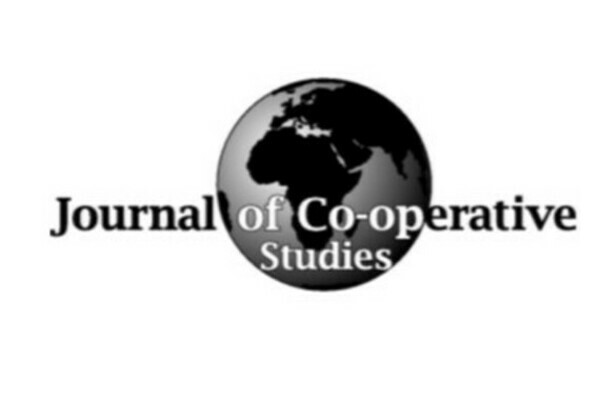Refereed articles
Producer and marketing co-operatives: Institutional contexts and strategies
Juha-Matti Saska, Liro Jussila, Pasi Tuominen, pp. 5-13.
Institutional theories of organisations have generated valuable insights when analyzing the interplay between the organisation and its environment. Especially the strategic role of organisational actors and their part in responding to institutional pressures and altering institutions have received attention among academics in recent years. However, organisations outside the mainstream, such as co-operatives, have drawn only little scholarly interest. In this article, we aim at understanding the institutional environment of Finnish producer and marketing co-operatives, emerging pressures, and managers' role in affecting and altering institutions.
The co-operative manifesto: Social philosophy, economics and psychology for co-operative behaviour
Carl Ratner, pp. 14-26.
This article articulates a conceptual foundation for co-operative behaviour. This foundation - known as 'co-operativism' - consists of a social philosophy, economic principles, and psychology. For co-operativism to be a specific and realistic programme, it must take account of obstacles to co-operative behaviour and overcome them. This article derives co-operativism from a critique of capitalist economics, social philosophy, and psychology which impede co-operative behaviour. Co-operativism thus has a political dimension that strives for material, social, ideological, and psychological change. The logic of co-operativism is articulated through a series of examples from less collectivised praxis and self-concept to more collectivised. The increased economic, social, and psychological benefits of the ascending levels are explained. The article uses the different levels of co-operativism as criteria for analysing co-operative practices in the United States. Shortcomings in co-operative practices can be ameliorated by striving for the highest level of co-operativism. The article is an activist programme for guiding organisations to promote high levels of co-operative behaviour; it is also a treatise on co-operativism that contributes to the social sciences, economics, philosophy, social policy, and conflict resolution. The article informs activism with a scholarly basis, and it informs scholarship about co-operative behaviour with practical examples and consequences.
Cross-border mergers between agricultural co-operatives
Jerker Nilsson and Ole Øhlenschlæger Madsen, pp. 27-38.
A merger between co-operatives involves two mutually dependent merger processes - one concerning the co-operative business firms and the other concerning the co-operative societies, ie, the ownership organisations. If the merger involves co-operatives in different countries, each with its own institutional structure and legal framework, the merger between the co-operative societies is likely to be especially difficult. The driving force behind a merger is the top management teams, and these persons have weak connections to the co-operative societies and limited knowledge about the social networks within the memberships. Hence cross-border mergers betvveen agricultural co-operatives are extremely challenging.
Short articles
The notion of nonprofit: Ambiguities and a research proposal
Yair Levi, pp. 41-46.
The notion of 'nonprofit' is vague and ambiguous: does it refer to organisations operating under the 'nondistribution constraint', to mean that they are not-for-profit in a system where the distribution of profit is a built-in element in the process of profit maximisation of the neo-liberal economy? Or does it refer to those organisations - like co-operatives, mutuals and associations - that make up the Social Economy? In the first case the nonprofit organisations typically characterise a Third Sector as interpreted, eg, by the John Hopkins study (Salamon and Anheier, 1994) without attempts to challenge the mainstream economic order. In the second case, being nonprofit is part of the main attributes that characterise organisations that challenge the dominant economic order and claim to provide an alternative to it. As the term 'nonprofit' is used in both cases and, as in some EU countries, the social economy is synonymous with the Third Sector, the need arises to bring some clarity to the issue under consideration. The hypothesis underlying our research proposal is that the notion of 'nonprofit' can go hand in hand with an economic system not necessarily based on the self-interest and profit maximisation of neo-classical economics.
The world’s largest credit co-operative system: Facing an uncertain future
Ralph Swoboda and Zhang Ruibin, pp. 47-51.
China's rural credit co-operatives (RCCs) are in the midst of a major reform whose outcome will determine whether they continue to be the world's largest credit co-operative system. RCCs in wealthier areas have consolidated into rural commercial banks, but those in the poor, rural interior are still mutual in form. The authors report on an assessment of the RCC sector that is currently being conducted jointly by the People's Bank of China (the Chinese central bank) and the World Council of Credit Unions, focused initially on RCCs in Guizhou Province. Their conclusion so far is guardedly optimistic: RCCs in Guizhou are beginning to function as true co-operatives, and, with appropriate changes in government policies supported by technical assistance, a co-operative model may be best-suited to meet the credit needs of subsistence farmers in China's poorest provinces.
Book reviews
Ecovillages: New frontiers for sustainability. By Jonathan Dawson.
Reviewed by Ian Donnachie, pp. 52-53.
Serving the people – Co-operative Party history from Fred Perry to Gordon Brown. By Greg Rosen.
The Co-operative Movement in Greater Nottingham: a Journey Towards Political Representation. By Christopher Richardson.
Reviewed by Jim Craigen, pp. 54-55.
Good and bad power: The ideals and betrayals of government. By G. Mulgan
Reviewed by Peter Somerville, pp. 56-57.
Co-operation and the State. By B J Youngjohns.
Reviewed by Trevor Bottomley










